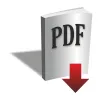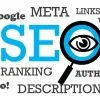In the age of information, shopping online can be a risky process. Navigating through the masses of e-commerce stores that are set up to mine identity data, steal card details, and take unsuspecting customers’ money can lead individuals to avoid small businesses altogether. This is on top of the risk of malware and malicious attacks that many online stores are vulnerable to.
So, letting your site visitors know they can trust you is an important part of the business-customer relationship. Once you’ve built up that trust, customers are far more likely to patronize your business repeatedly, recommend your products or services to family and friends, engage with your social media, and provide you with gleaming testimonials.
But what makes a business’s site trustworthy? In this guide, we’ll explore some of the key things you must include on your website to gain visitors’ trust. As well as this, there are some extra security measures you can add to your site that isn’t vital but can put you ahead of the competition in terms of customer safety and satisfaction.
Establishing Trust in the Customer Journey
While website security is the main pillar of customer trust in your business, some much more basic things can establish trust early on. The journey customers take through your site, which ideally ends in a purchase, should tell them everything they need to know to build up trust in your business.
According to the Neilsen Norman Group’s ‘Pyramid of Trust’, there are four levels of trust needs that have to be met by a business, before site visitors are willing to become repeat customers. In order of ascending importance, these are:
- Baseline Reverence
As a visitor clicks around your site and learns more about your business, they’ll establish a baseline reverence. Essentially, you need to show customers that your business is legitimate. Some simple ways to ensure this happens are including pertinent information on your home page such as testimonials, and including your contact details on a separate page.
- Interest and Preference Over Competition
This next level of trust relates to site visitors opting to trust your business over your competitors. To do this you can host a blog that regularly provides helpful information and assures customers of your expertise in your industry, including an About Us page to put a personal touch on your business, list any important partnerships you hold in your industry, and link to your social media (which should be active and updated regularly).
- Trust with Personal Information
Next, potential customers need to be satisfied that their data will be safe when visiting and purchasing from your business’s site. Standard US data protection laws must be followed, and customers’ express permission should be gained before you take any personal details from them such as email and home addresses.
- Trust with Sensitive Financial Information
The final level of trust is the most important. To solidify an ongoing relationship between your business and your site visitors, you must have security in place to protect their financial information. Any precautions you take in this area should be disclosed on your site, so visitors can decide whether your security is adequate.
The final two pillars are vital in gaining customer trust, and these relate directly to website security. If your website doesn’t have the security measures in place to protect personal and financial information, it’s unlikely that you’ll gain enough visitor trust to establish an ongoing relationship.
Basic Website Security
The following 5 recommendations are security measures you should include on your business’s site as standard.
Reputable Hosts - The servers that host your site are vital in protecting your customers’ details and information, as well as your business’s finances and data. While it can be tempting, especially for a small business, to use free website hosts, this brings a lot of pitfalls. Not only will your site’s loading times be slow and the mobile compatibility mediocre at best, but your site security will also suffer. While 95% of attacks occur on the website itself, it is not uncommon for hackers to gain access to your data through your site host.
SSL and Secure URL - While your site URL begins with ‘HTTP’, visitors will be on the lookout for sites that host ‘HTTPS’ URLs. This stands for Hypertext Transfer Protocol Secure and encrypts all requests and responses when using that URL. To get this all-important S in your URL, you’ll need an SSL certificate that can be embedded into your site’s code. You’ll need to pay an annual fee for this certificate to a certificate authority, but it’s a sound investment. Be sure to display the secure site seal on the relevant pages to let visitors know your site is secure.
Privacy Policies - Having a privacy policy will go a long way to gaining customer trust when it comes to their personal data, but it’s also a legal requirement. This policy will detail when and why your site collects data, how it is stored, and how customers can go about requesting or deleting their data. In general, you should collect only essential data and delete data regularly, especially transaction data, once it’s no longer relevant. Make sure to display your privacy policy clearly, and have site visitors agree to it before making a purchase.
PCI Compliance - PCI compliance isn’t just important when gaining a visitor’s trust. Not complying with the Payment Card Industry security standards can see your business receiving hefty fines. When site visitors see that your site is PCI compliant, they can rest assured that their card details and financial data will be safe. The requirements for PCI compliance are regular updates to the passwords for network equipment, an active firewall between the internet and data storage systems, encryption for transmission of data, unique IDs for any employees that handle customer financial data, and limited physical access to any card information.
Update Software and Plug-ins - If you’re using any software or plug-ins on your site to protect customer data against malware and malicious attacks, it’s important to update these as and when new updates are released. Allowing your site’s security measures to age and decay may not be something that site visitors are aware of, but if their personal or financial data is ever stolen it can make a huge dent in your business’s reputation. It’s always better to be safe than sorry.
Extra Website Security Measures
The following security measures are a little more unusual, especially for small businesses, so they can help to gain an added level of customer trust over your competitors.
Manage User Access - If you have several employees working for you, it can be tempting to delegate tasks, such as uploading blog posts, to relevant individuals. However, your content management system stores a majority of your site’s important data, so it’s vital to thoroughly brief any employees that will be using it on necessary security measures. Any employees that are given access to your site should use unique passwords that are changed regularly, and be able to access your business’s online security policies whenever they might need to double-check. In general, it’s good practice not to let more than 3 people have access to your CMS.
Request Card Security Codes - The 3-digit codes written on the back of credit and debit cards, sometimes known as CVVs, can be a great way to add an extra layer of security for customers who are purchasing through your site. By requesting security codes during the payment process, you can ensure that the customer has their physical card present, and protect them from identity fraud and other scams. Card security codes are not required, so while some customers may be unfamiliar with providing them, it can inspire trust over your competitors who don’t request for customers to provide their CVVs.
Utilize External Servers - Backing up data is a common security measure that all those who are tech-savvy use, be it for important documents or photos, or entire computer systems. When it comes to business websites, backing up your site data can greatly decrease downtime, and protect important personal and financial information should you suffer a major security incident. While most reputable website hosts will have a way to back up your site, it’s well worth investing in external server space. All information sent to these servers will be automatically encrypted so there’s no added risk. In fact, external servers are far more secure than a regular backup, so you can reassure customers that their data is stored and handled safely.
Customer Accounts -To capitalize on the visitor trust that’s built by the security measures above, a beneficial step is asking customers to create personal accounts. This can go a long way to avoiding fraudulent transactions on your site, as well as making it far easier for visitors to become repeat buyers. To improve site security, request that customers complete two-factor authentication, such as inputting a one-time password (OTP). This also helps to prevent bots from creating accounts on your site, and you can manage customers making unusual transactions by requesting they input their password again at the time of purchase.
Change CMS Settings - Finally, we mentioned content management systems above, and usually, these will be provided by your website host. CMS deals with permissions, controls, and user visibility, which are all important and complex parts of your site. However, leaving your CMS settings on default is what attack bots are looking for, so they can install malware and gain access to your site’s data. As well as changing the permissions and user settings to include only a small number of trusted employees, you can alter who can access certain files and what commands they can execute on those files.
In Conclusion
When it comes to gaining visitor trust on your business’s site, the most important security measures related to protecting personal and financial information. If visitors have peace of mind that their data and important details are encrypted and regularly deleted, they’ll be far more likely to purchase repeatedly from your site. The most important security measures are Privacy Policies and PCI compliance, which are mandated by law. On top of this, basic measures such as SSL certificates and encryption services are types of security that you can highlight on your site to reassure visitors. However, you can also add a whole host of security measures to your site such as customer accounts and external backups, which are highly useful in gaining increased customer trust over your competitors.
Sources
https://www.nngroup.com/articles/commitment-levels/
https://www.orientation.agency/insights/20-ways-to-build-trust-with-your-website-visitors
https://www.startuploans.co.uk/business-advice/how-to-protect-customer-data/
https://medium.com/@Authy/5-key-considerations-when-securing-online-customer-accounts-4276f355a791
https://www.getastra.com/blog/knowledge-base/e-commerce-credit-card-security/





















Add comment